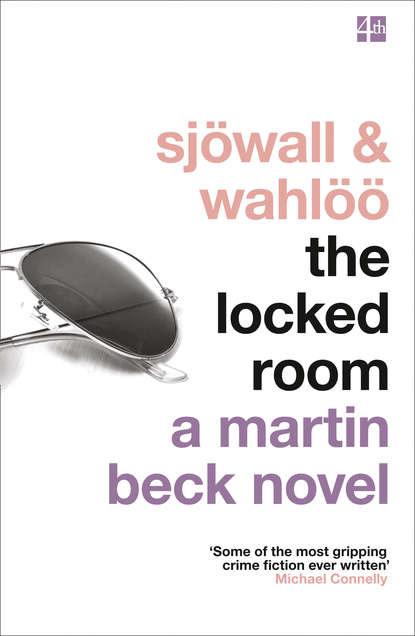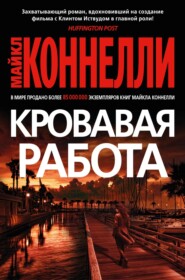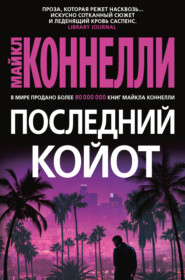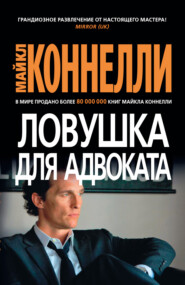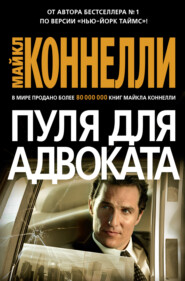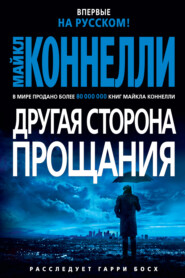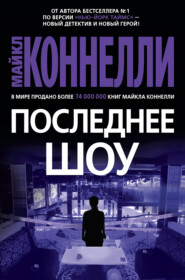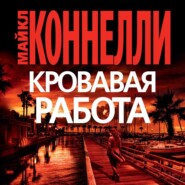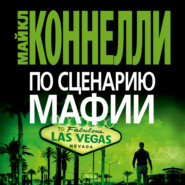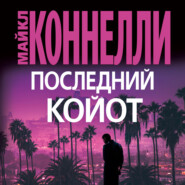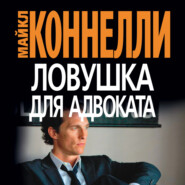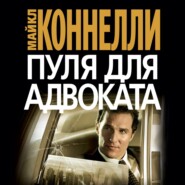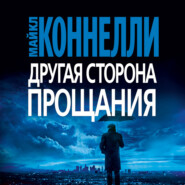По всем вопросам обращайтесь на: info@litportal.ru
(©) 2003-2024.
✖
The Locked Room
Автор
Год написания книги
2019
Настройки чтения
Размер шрифта
Высота строк
Поля
For a moment he wondered whether he ought to detain the last witness, but dropped the idea. Everyone appeared eager to get home as quickly as possible. To tell the truth, he was the most eager of all, though probably that was hoping too much. So he let all the witnesses go.
Putting on his jacket, he went back to the bank.
The remains of the courageous gymnastics teacher had been removed, and a young constable stepped out of his car and informed him politely that Detective Inspector Rönn was waiting for him in his office. Gunvald Larsson sighed and went over to his car.
3 (#u3bf999e2-49f3-5162-8699-d15604ac1633)
He awoke astonished at being alive. This was nothing new. For exactly the last fifteen months he'd opened his eyes every day with the same confused question: How is it I'm alive?
Just before waking he'd had a dream. This too was fifteen months old. Though it shifted constantly, it always followed the same pattern. He was riding. A cold wind tearing at his hair, he was galloping, leaning forward. Then he was running along a station platform. In front of him he saw a man who'd just raised a gun. He knew who the man was and what was going to happen. The man was Charles J. Guiteau; the weapon was a marksman's pistol, a Hammerli International.
Just as the man fired he threw himself forward and stopped the bullet with his body. The shot hit him like a hammer, right in the middle of his chest. Obviously he had sacrificed himself; yet at the same moment he realized his action had been in vain. The President was already lying crumpled on the ground, the shiny top hat had toppled from his head and was rolling around in a semicircle.
As always, he'd woken up just as the bullet hit him. At first everything went black, a wave of scorching heat swept over his brain. Then he opened his eyes.
Martin Beck lay quietly in his bed, looking up at the ceiling. It was light in the room. He thought about his dream. It didn't seem particularly meaningful, at least not in this version. Besides which it was full of absurdities. The weapon for example; it ought to have been a revolver or possibly a derringer; and how could Garfield be lying there, fatally wounded, when it was he himself who demonstrably had stopped the bullet with his chest?
He had no idea what the murderer had looked like in reality. If ever he'd seen a photo of the man, the mental image had been wiped out long ago. Usually Guiteau had blue eyes, a blond moustache, and sleek hair, combed back; but today he'd mostly resembled an actor in some famous role. Immediately he realized which: John Carradine as the gambler in Stagecoach. The whole thing was amazingly romantic.
A bullet in your chest, however, can easily lose its poetic qualities. That much he knew from experience. If it perforates the right lung and then lodges near the spine, the effect is intermittently painful and in the long run very tedious.
But there was also much in his dream that agreed with his own reality. The marksman's pistol, for example. It had belonged to a dismissed police constable with blue eyes, a blond moustache, and hair combed diagonally back. They'd met on the roof of a house under a cold, dark, spring sky. No words had been exchanged. Only a pistol shot.
That evening he'd woken up in a bed in a room with white walls – more precisely in the thorax clinic of Karolinska Hospital. They'd told him there his life was in no danger. Even so, he'd asked himself how it was he was still alive.
Later they'd said the injury no longer constituted a threat to his life, but the bullet wasn't sitting too well. He'd grasped, though not appreciated, the finesse of that little ‘no longer’. The surgeons had examined the X-ray plates for weeks before removing the foreign object from his body. Then they'd said his injury definitely no longer constituted any danger to his life. On the contrary, he'd make a complete recovery – providing he took things very easy. But by that stage he'd stopped believing them.
All the same, he had taken things pretty easy. He'd had no choice.
Now they said he'd made a complete recovery. This time too, however, there was an addition: ‘Physically.’ Furthermore he shouldn't smoke. His windpipe had never been too good, and a shot through the lung hadn't improved matters. After it had healed, mysterious marks had appeared around the scars.
Martin Beck got up. He went through his living room out into the hallway and, picking up his newspaper, which lay on the doormat, went on into the kitchen, meanwhile running his eyes over the front-page headlines. Beautiful weather, and it would hold, according to the weatherman. Apart from that, everything seemed, as usual, to be taking a turn for the worse. Setting down the newspaper on the kitchen table, he took a yoghurt out of the fridge. It tasted as it usually did, not good and not exactly bad, just a trifle musty and artificial. The carton was probably too old. Probably it had already been old when he'd bought it – the days were long gone when a Stockholmer could buy anything fresh without having to make a particular effort or pay an outrageous price. Next stop was the bathroom. After washing and brushing his teeth he returned to the bedroom, made the bed, took off his pyjama trousers, and began to dress.
As he did so he looked listlessly around his flat. It was at the top of a building on Köpmangatan, in the Old City. Most Stockholmers would have called it a dream home. He'd been living here for more than three years, and could still remember how comfortable he'd been, right up to that spring day on that roof.
Nowadays he mostly felt shut in and lonely, even when someone dropped in on him. Presumably this was not the flat's fault. Often of late he'd caught himself feeling claustrophobic even when he was outdoors.
He felt a vague urge for a cigarette. True, the doctors had told him he must give it up; but he didn't care. A more crucial factor was the State Tobacco Company's discontinuance of his usual brand. Now there were no cardboard-filter cigarettes on the market at all. On two or three occasions he'd tried various other kinds, but hadn't been able to accustom himself to them. As he tied his tie he listlessly studied his ship models. There were three of them standing on a shelf over his bed, two completed and the third half-finished. It was more than eight years ago that he had started building them, but since that April day last year he hadn't even touched them.
Since then they had gathered a lot of dust. Several times his daughter had offered to do something about this, but he'd asked her to leave them alone.
It was 8.30 a.m., the third of July, 1972, a Monday. A date of especial importance. On this particular day he was going back to work.
He was still a policeman – more exactly, a detective chief inspector, head of the National Murder Squad.
Martin Beck put on his jacket and stuffed the newspaper in his pocket, intending to read it on the metro – just one little detail of the routine he was about to resume.
Walking along Skeppsbron in the sunlight, he inhaled the polluted air. He felt old and hollow. But none of this could be seen in his appearance. On the contrary, he seemed healthy and vigorous, and his movements were swift and lithe. A tall, suntanned man with a strong jaw and calm, grey-blue eyes under a broad forehead, Martin Beck was forty-nine. Soon he'd be fifty. But most people thought he was younger.
4 (#u3bf999e2-49f3-5162-8699-d15604ac1633)
The room in the South Police Headquarters on Västberga Avenue testified to the long residence of someone else as acting head of the Murder Squad. Though it was clean and tidy and someone had taken the trouble to place a vase of blue cornflowers and marguerites on his desk, everything vaguely suggested a lack of precision – superficial yet obvious, and in some way snug and homey. Especially in the desk drawers. Clearly, someone had just taken a lot of things out of them; but a good deal was still left. Old taxi receipts and cinema tickets for example, broken ball-point pens and empty sweet packets. In several of the pen trays were daisy chains of paper clips, rubber bands, lumps of sugar, and packets of saccharine tablets. Also, two packets of moist towelettes, one pack of Kleenex, three cartridge cases, and a broken Exacta watch. And a large number of slips of paper with scattered notes written in a clear, highly legible hand.
Martin Beck had gone around the station and said hello to people. Most, but by no means all, were old acquaintances. Now he was sitting at his desk, examining the watch, which appeared to be utterly useless. The crystal was misty on the inside, and when he shook it a gloomy, rustling noise came from within the watch-case, as if every one of its screws had come loose.
Lennart Kollberg knocked and entered. ‘Hello,’ he said. ‘Welcome.’
‘Thanks. Is this your watch?’
‘Yes,’ said Kollberg glumly. ‘I happened to put it in the washing machine. Forgot to empty my pockets.’ He looked about him and went on apologetically: ‘Actually I tried fixing it last Friday, but someone interrupted me. Well, you know how it is …’
Martin Beck nodded. Kollberg was the person he'd seen most of during his long convalescence, and there wasn't much new for them to tell one another. ‘How's the diet coming along?’
‘Fine,’ said Kollberg. ‘I was down a pound this morning, from sixteen stone four pounds to sixteen three.’
‘Then you've only put on a stone and a half since you began?’
‘A stone and a quarter,’ said Kollberg with a look of hurt pride. He shrugged and went on grumblingly: ‘It's bloody awful. The whole project flies in the face of nature. And Gun just laughs at me. Bodil too, for that matter. How are you, by the way?’
‘Fine.’
Kollberg frowned but said nothing. Instead he unzipped his briefcase and extracted a light red plastic folder. It seemed to contain a none-too-extensive report. Maybe thirty pages.
‘What's that?’
‘Let's call it a present.’
‘Who from?’
‘Me, for example. Although it's not, actually. It's from Gunvald Larsson and Rönn. They think it's terribly funny.’
Kollberg laid the file on the table. Then he said: ‘Unfortunately I have to go.’
‘What for?’
‘NPB.’
Which was the new National Police Board.
‘Why?’
‘These damn bank robbers.’
‘But there's a special squad for them.’
‘The special squad needs reinforcements. Last Friday some thick-headed twit got himself shot again.’
‘Yes, I've read about it.’





